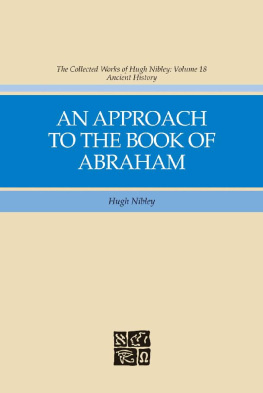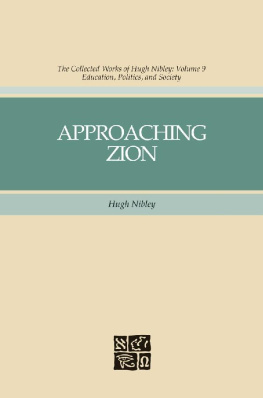Hugh Masikela - Still Grazing
Here you can read online Hugh Masikela - Still Grazing full text of the book (entire story) in english for free. Download pdf and epub, get meaning, cover and reviews about this ebook. year: 2004, publisher: Jacana Media, genre: Non-fiction. Description of the work, (preface) as well as reviews are available. Best literature library LitArk.com created for fans of good reading and offers a wide selection of genres:
Romance novel
Science fiction
Adventure
Detective
Science
History
Home and family
Prose
Art
Politics
Computer
Non-fiction
Religion
Business
Children
Humor
Choose a favorite category and find really read worthwhile books. Enjoy immersion in the world of imagination, feel the emotions of the characters or learn something new for yourself, make an fascinating discovery.
- Book:Still Grazing
- Author:
- Publisher:Jacana Media
- Genre:
- Year:2004
- Rating:3 / 5
- Favourites:Add to favourites
- Your mark:
- 60
- 1
- 2
- 3
- 4
- 5
Still Grazing: summary, description and annotation
We offer to read an annotation, description, summary or preface (depends on what the author of the book "Still Grazing" wrote himself). If you haven't found the necessary information about the book — write in the comments, we will try to find it.
Still Grazing — read online for free the complete book (whole text) full work
Below is the text of the book, divided by pages. System saving the place of the last page read, allows you to conveniently read the book "Still Grazing" online for free, without having to search again every time where you left off. Put a bookmark, and you can go to the page where you finished reading at any time.
Font size:
Interval:
Bookmark:
There are countless names that echo in the chambers of memory names that were celebrated even feared, during the halcyon days of Kofifi Sophiatown Father Trevor Huddleston, Dolly Rathebe, Duba Duba, Bloke Modisane and a colourful array of others. Then, theres Hugh Masekela A name. No, a cheeky bloody native, with a great sense of gifted musicality, wit, savvy, humour and the gift of the gab Twice, I saved his life when street and gang-lords wanted to slit his throat, in the seedy streets of Sophiatown. He lived to put his native South Africa on the front stage. Not with a gun, but with his trumpet. Singing and playing deep into the heart of apartheid darkness; bringing light and hope. Laughter and rebirth. Touching lives. Giving hope. Helping to rebuild the land of his birth. Sharing his vision for a better world for the children of tomorrow. Hugh Masekela A genius of our time Listen to him. God, and I, didnt save his life for nothing.
B RA D ON M ATTERA
Even though Still Grazing , Hugh Masekelas biography, carries a subtitle that refers to his musical journey, the book is, in a word, the spiritual journey of black South Africans. Very few people have straddled so many eras, from the early sixties before the teeth of the Group Areas Act started biting, during a period of renaissance in the arts, through the years of exile that spanned almost three decades, to the years in post-apartheid South Africa. While a well-known raconteur and bon vivant, Hugh Masekelas journey is a representation of the invincibility of the human spirit. He has endured everything life could throw at him, from reaching stellar heights in his music career to trawling the depths of desperation in active addiction. In all these different circumstances, Masekela has conducted himself with singular courage. His story, then, told in an accessible language that connected with all walks of life, is a story of a man who refused to be defined by circumstances that had defeated many of his peers. Anyone who has worked with him will attest to a greatness of spirit of a man who spurs us to excel in all our strivings. To the people in the international arena, Masekelas name is synonymous with the name of the country of his birth, South Africa.
M ANDLA L ANGA
Still Grazing was published and released in 2004 out of a New York City publishing house. It has never been published at home. A limited number of copies of this first edition were made available in South Africa, but they sold out quickly and it hasnt been available for a number of years.
Owing to endless demand by many who could not find the book, we managed to re-secure the rights from New York and we are now able to properly publish Still Grazing in South Africa, with Jacana Media, whose enthusiasm helped make it possible.
This is a story of a man whose life I sincerely wish could have been my own packed with music, travel, outrage, tragedy, history, adventure, learning, spirituality, love, abandon, joy and laughter.
Thank you Jacana Media, colleagues, friends, Pula Twala, Rapelang Leeuw, David Dison, Josh Georgiou, Mabusha Masekela and all who read the book originally and created an environment for its present demand.
All the very best,
R AMAPOLO H UGH M ASEKELA


Grateful acknowledgement is made to Alfred A. Knopf and Harold Ober Associates for permission to reprint an excerpt from the poem The Negro Speaks of Rivers from The Collected Poems of Langston Hughes by Langston Hughes. Copyright 1994 by The Estate of Langston Hughes. Reprinted by permission of Alfred A. Knopf, a division of Random House, Inc. and Harold Ober Associates.
First published by Crown Publishers, New York, New York in 2004
Member of the Crown Publishing Group, a division of Random House, Inc.
www.randomhouse.com
Published in South Africa by Jacana Media (Pty) Ltd in 2015
10 Orange Street
Sunnyside
Auckland Park 2092
South Africa
+2711 628 3200
www.jacana.co.za
Hugh Masekela and D. Michael Cheers, 2004
All rights reserved. No part of this book may be reproduced or transmitted in any form or by any means, electronic or mechanical, including photocopying, recording, or by any information storage and retrieval system, without permission in writing from the publisher.
Also available as an e-book:
d-PDF 978-1-4314-2362-0
ePUB 978-1-4314-2363-7
mobi file 978-1-4314-2364-4
Cover design by publicide
Back cover photograph of Hugh Masekela D. Michael Cheers
Design by Leonard W. Henderson
See a complete list of Jacana titles at www.jacana.co.za
In loving memory of my beloved mother, Polina Bowers, my dear father, Thomas Selema Masekela, my maternal grandmother, Johanna Mthise Mabena-Bowers, and my paternal grandparents, Mamoshaba and Hopane Masekela. This book is dedicated to all their children, grandchildren, and great-grandchildren and the glorious clans of the Ma-Ndebele, BaTlokwa, and Bakaranga from which they come.
H UGH M ASEKELA
In loving memory of Milton, Marie, and Karen my father, mother, and sister who never had the opportunity to experience the beauty of Africa!
D. M ICHAEL C HEERS
I GREW UP IN A SMALL town in South Africa named Witbank, a one-street, redneck, right-wing Afrikaner town, surrounded by coal mines and coal trains with endless carriages and coal-packed containers crisscrossing the horizon, pulled by steam engines we called Mankalanyana, churning smoke up into the air. I remember seeing women in the mornings and at sunset running alongside the coal trains with large tin cups collecting the coal nuggets that fell from the cars. It was a tough town where African miners drank themselves stuporous to blot out memory of the blackness of the mines and the families and lands theyd left behind, often never to see again. But even when the burning coal and dust blackened out the sun, we still had music to sing our sorrow and illuminate our ecstasy.
When I was four, I was a pageboy in my Auntie Lilys wedding to Nico Sikwane. For the reception that night, the Jazz Maniacs, South Africas top township orchestra, played selections from their swing and mbhaqanga repertoire (mbhaqanga was the dominant music of the townships in South Africaa sound as joyous and sad as anything in the world, but Ill get to that later). The band members were all dressed in black tuxedoes, bow ties, and starched, white shirts. The featured soloists were the young saxophonists Zakes Nkosi, Mackay Davashe, Kippie Moeketsi, and Ellison Themba. Kippies brother was the dapper pianist, who dressed as flamboyantly as the great American Jelly Roll Morton, smiling all the time, showing off his shining gold-capped tooth. I stood wide-eyed next to the lead trumpeter, Drakes Mbau, fascinated by all the gleaming silver instruments, the drums, guitar, and double bass. The band was tight and played all night, swinging and smiling and sweating and creating a widening circle of bliss that enthralled and hypnotized the wedding guests and left me thrilled and wrung out, dazzled and slack. The band played and danced as if possessed by some uncontrollable magic. I fell asleep on the stage while the party raged on, and dreamed of big bands into the early morning. It was in those days in Witbank that music first captured my soul, forced me to recognize its power of possession. It hasnt let go yet. But Im getting ahead of myself.
On April 4, 1939, against a historical backdrop of white domination and black rebellion, Pauline Bowers Masekela, who everyone called Polina, gave birth to me inside my grandmothers house at 76 Tolman Street, on a dusty, tree-lined avenue in Kwa-Guqa Township, Witbank, about one hundred miles east of Johannesburg. The Star the widely circulated, white-owned daily newspaper, did not publish my arrivalor, for that matter, any news about black people. There were only a few African-language newspapersnot that African editors would have trumpeted the arrival of Ramapolo Hugh Masekela.
Font size:
Interval:
Bookmark:
Similar books «Still Grazing»
Look at similar books to Still Grazing. We have selected literature similar in name and meaning in the hope of providing readers with more options to find new, interesting, not yet read works.
Discussion, reviews of the book Still Grazing and just readers' own opinions. Leave your comments, write what you think about the work, its meaning or the main characters. Specify what exactly you liked and what you didn't like, and why you think so.

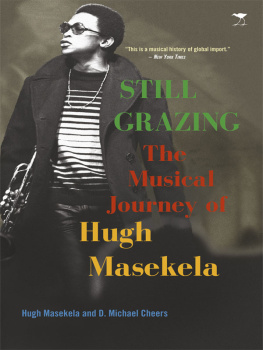

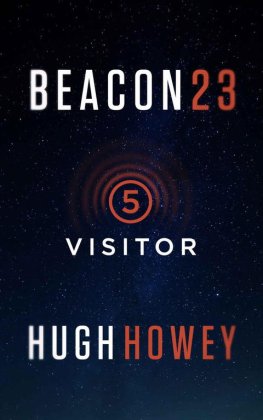

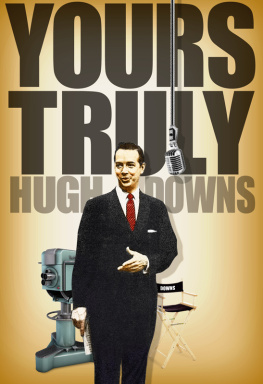




![Robert Hugh Benson [Benson - Robert Hugh Benson Collection [11 Books]](/uploads/posts/book/139831/thumbs/robert-hugh-benson-benson-robert-hugh-benson.jpg)
